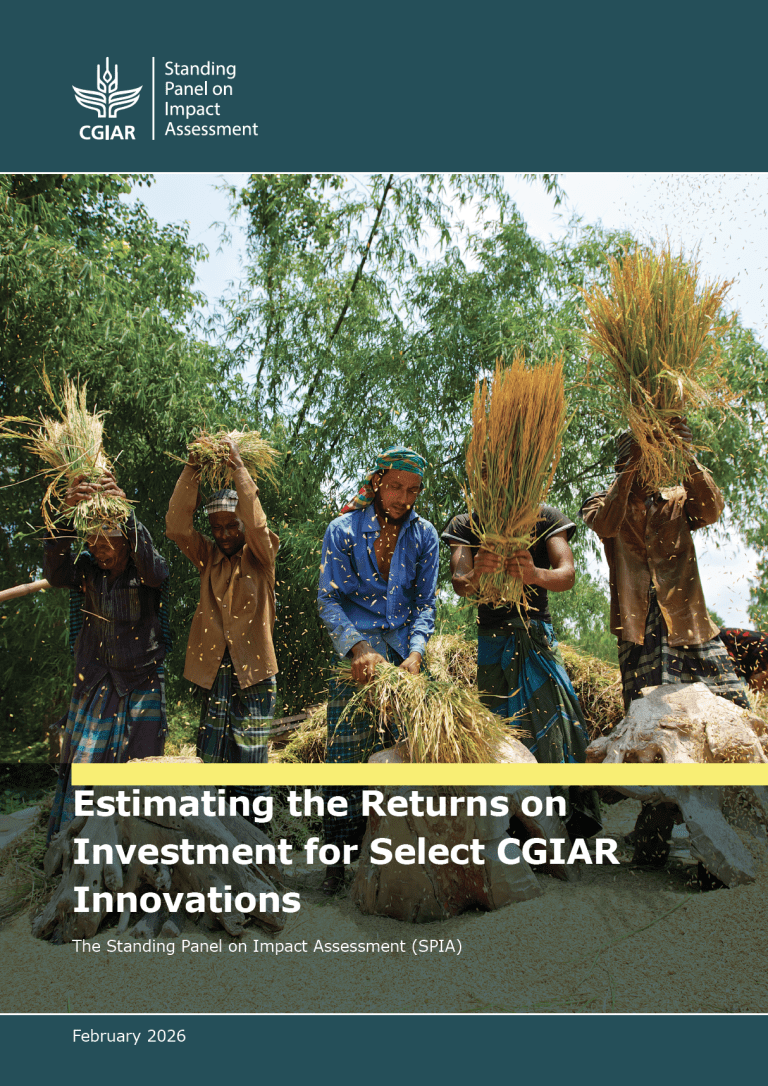The Lunar New Year began on Feb 1st, 2022, bringing billions of people into the Year of the Tiger. The Vietnamese welcome the Tiger Year Tet holidays with a feline energy and bold action. Appropriately enough then, this date also kick-starts data collection for the 2022 Vietnam Household Living Standard Survey (VHLSS). This survey, managed by the General Statistics Office of Vietnam, collects data on farming practices at the household level, along with important socio-economic characteristics. The VHLSS is a nationally representative household survey of approximately 47,000 households, with a panel component.
Having scoped out our options during 2021, we identified the VHLSS survey as a good candidate to build SPIA’s country-level approach around, as we aim to institutionalize the collection of adoption data on CGIAR-related innovations in Vietnam. In this spirit, we are delighted to have been able to partner with the Vietnam General Statistics Office to integrate new modules into a sub-sample of this large survey.
Over the past 18 months, we have undertaken an initial stocktaking exercise of CGIAR-related activities conducted in Vietnam. From this exercise we have identified three rice-based innovations as good candidates for better data collection efforts. These innovations have been the subject of extensive research, have potentially reached a significant number of adopters, and are highly relevant for current agricultural policies in Vietnam. The identified innovations are
- Improved rice varieties
- “One must-do, five reductions” (1M5R) and Alternate Wetting and Drying (AWD)
- Adaptive rice-based systems and cropping calendars, derived from Climate-Smart Maps and Adaptation Plans (CS MAP)
Besides providing new evidence on the reach of CGIAR innovations, data on adoption will help the Vietnamese government monitor the country's Nationally Determined Contributions (NDC). Indeed, these innovations have the potential to contribute to a reduction in GHG emissions from paddy rice.
In terms of measurements, plant samples representing all rice-growing areas of the country in Dong Xuan season will be collected for DNA fingerprinting, following a strict plot-level sampling protocol. 1M5R, AWD, Adaptive rice-based systems and cropping calendars will be measured using self-reported data from households. These modules were designed in collaboration with IRRI colleagues in Vietnam and subsequently tested in a phone survey in five provinces.
The training of enumerators took place at the end of January, connecting 63 Provincial Statistics Offices and 250 district-level statistical divisions. Approximately 2000 supervisors and enumerators were trained on the survey protocol and the newly introduced CAPI tools.

Ms. Vu Thi Thu Thuy, Director of GSO Data Collection Department chaired the VHLSS 2022 training

Provincial and district-level statistical offices from the General Statistics Agency, following the online training.
SPIA members joined with GSO statisticians to train the supervisors and enumerators on the new modules. We also took the opportunity to introduce the Vietnam GSO, PSO and DSO statistical staff to the CGIAR SPIA and our mandate of collecting better data about agricultural innovations to allow us to understand the impact of CGIAR research investments. The presentation given on the newly introduced VHLSS module “9: RICE MANAGEMENT AND PLOT VISIT” is available here (in Vietnamese).
|
|
 |
Enumerators will use the CAPI tools questionnaire form, available on Google app store (in Vietnam only).
GSO staff were very engaged during the training sessions - they responded quickly to the speakers’ questions and actively asked questions. They showed eagerness about the GSO-SPIA collaboration, and the module that SPIA has included in the survey.
This is the third country SPIA has focused its efforts on, after Ethiopia and Uganda. Vietnam is a middle-income country, with an intensified, largely exported rice production and a strong agricultural extension system mainstreaming innovations. CGIAR centers have conducted research in the country for the last three decades. All of these factors make Vietnam a country in which we can expect to observe significant diffusion of CGIAR-related innovations, and for which our findings will have a broad, interested audience of potential data-users.
In this month of February 2022, nearly 8,000 households will be interviewed, followed by around 4,000 households surveyed each month to come until Dec 2022. The Year of Tiger embodies energy, strength and courage. These are qualities enumerators will certainly need to collect the VHLSS modules, and we wish them good luck in this exercise.
Communication about the VHLSS training from the General Statistics Office is available here.





